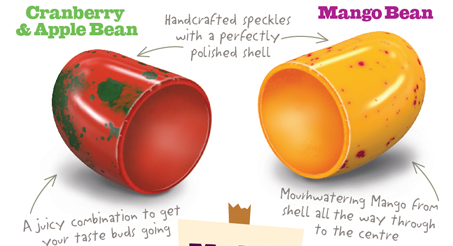Businesses put a lot of energy into positioning their products and brand in certain ways in their consumer’s minds. Sometimes they can back up their phrases thoroughly; Pak ‘N Save has a policy authenticated by the Consumers Institute to prove their food prices really are New Zealand’s lowest! Other times it isn’t so clear. Take for example the Jelly Bean Factory which proudly markets their jelly beans as gourmet.

It’s debatable whether their jelly beans are gourmet or if jelly beans can be considered as gourmet. Does their confectionary really count as gourmet? And more importantly, do consumers believe that their jelly beans are gourmet?
Positioning really is in the consumers minds. So a business can try position it’s jelly beans as gourmet and a country could try and position itself as a pop culture center. But does this really matter when consumers position brands internally? In a sense, yes and no. It’s unlikely a consumer will eat The Jelly Bean Factory confectionary and claim the “berrylicious flavours” are distinguished and fine enough to be classed as gourmet.
However at the same time, it is likely the consumer suckered into paying $3 more for gourmet jelly beans will be predispositioned into believing the goods are high value. This will cause them to have amore positive experience and likely return for more. This predispositioning can also be a disfavour but that is another topic.
